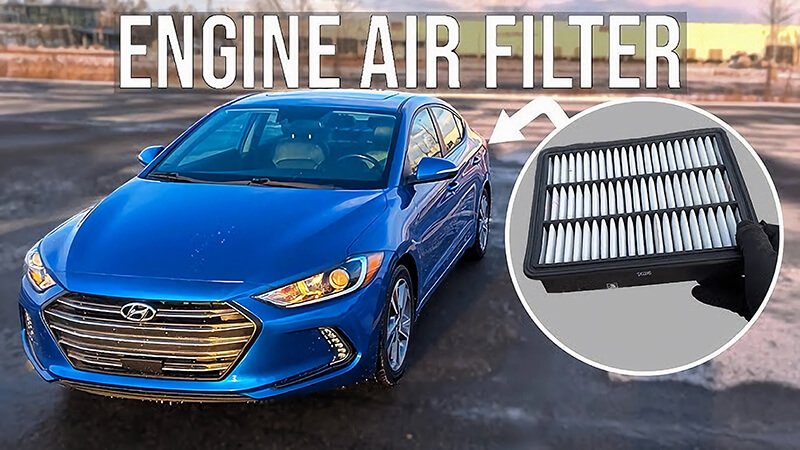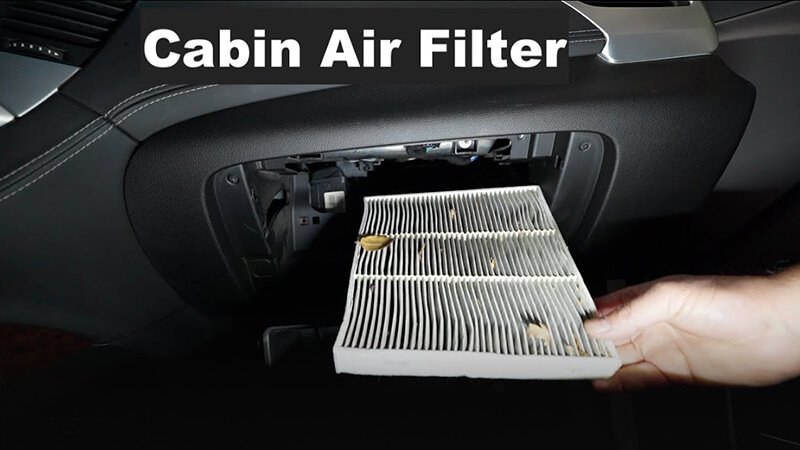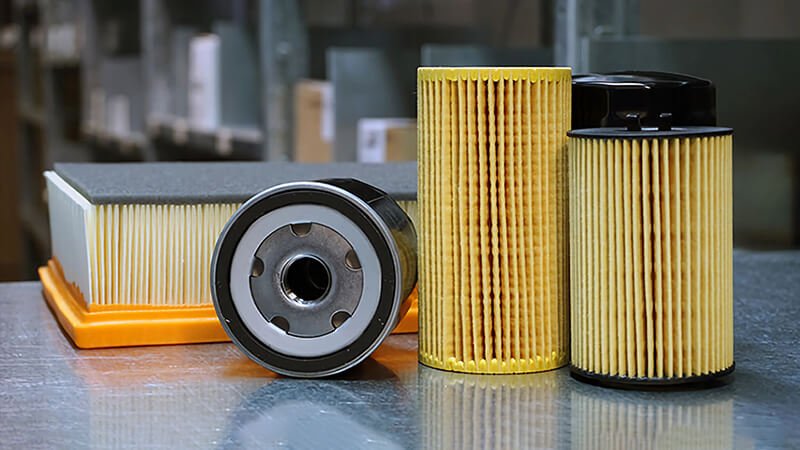Your car runs, but something feels off—less power, rough idle, higher fuel usage. You might think it's a bigger issue, but sometimes, it's just your engine air filter doing a poor job because it's full of dirt.
Yes, you can drive with a dirty air filter, but you probably shouldn't. It harms your engine’s performance, fuel economy, and could lead to long-term damage.
If you're in charge of sourcing or maintaining parts—especially if you're in procurement—you already know how small components like filters play a big role. Let’s go deeper into why a clean air filter isn't just optional, but essential.

What happens if you don't clean the air filter on your car?
It’s tempting to overlook air filters because they’re cheap and small. But that dirt? It doesn't stay in the filter—it starts hurting your engine.
If you don’t clean or replace your engine air filter, it gets clogged and stops air from reaching the engine. This lowers performance, hurts mileage, and allows dirt to sneak into engine parts.
How airflow affects engine performance
Your engine burns fuel with air. If air supply drops1, the burn isn't clean. That means more fuel gets used, combustion isn’t complete, and your car feels weak on the road. This is especially noticeable under load or during acceleration.
| Condition | Clean Air Filter | Dirty Air Filter |
|---|---|---|
| Air Intake Volume | High | Low |
| Engine Power | Optimal | Reduced |
| Fuel Efficiency | High | Low |
| Emissions | Controlled | Increased |
| Engine Lifespan | Extended | Shortened |
Long-term damage from dust and debris
When a clogged filter2 can't trap debris anymore, small particles start entering the engine. This causes internal abrasion3—tiny scratches that wear parts faster. Over months, that turns into real damage. You’ll see more oil burning, strange noises, or even full engine failure.
So while skipping a filter change might save a few bucks now, you’ll pay a lot more for engine repair or replacements down the road.

Will a dirty air filter cause a car to not start?
It’s rare—but it can happen. Especially when the filter is totally blocked or if it's been in there way too long.
A dirty air filter usually doesn’t prevent starting, but if it's extremely clogged, it might restrict airflow enough to cause hard starts or prevent combustion entirely.
Starting problems: What’s airflow got to do with it?
The engine needs air to mix with fuel during startup. Without enough air, that balance is off, and the engine can misfire or fail to ignite. Think of trying to light a fire with no oxygen—it won’t work.
You might hear the engine cranking but not catching. Or it might start rough, idle low, and shut off again. This is more likely in cold weather when engines are more sensitive to air/fuel mix4.
| Symptom | Possible Link to Dirty Air Filter |
|---|---|
| Engine cranks but won't start | Yes |
| Engine starts but stalls | Yes |
| Check Engine Light | Sometimes |
| Black smoke from exhaust | Yes |
| Strong fuel smell | Yes |
It’s more than the filter—sensors can also get confused
Modern engines use sensors like MAF (Mass Air Flow)5 to measure incoming air. When the filter is clogged, readings drop. The system may adjust fuel incorrectly, making starts harder.
This is why, even though a dirty filter isn’t always the direct cause of no-starts, it plays a role in a domino effect of engine misbehavior.

How does a car run with a dirty air filter?
It runs—but not well. It drinks more fuel, struggles uphill, and responds slower when you press the gas.
A car with a dirty air filter will have reduced acceleration, poor fuel economy, higher emissions, and possibly a rough idle or strange noises from the engine.
Driving with a dirty filter: What it feels like
You’ll notice small changes first. Your car may take longer to respond when you accelerate. Fuel mileage starts dropping—you stop at gas stations more often. The engine may feel “heavier” or noisier.
These symptoms get worse over time:
- Throttle lag6 – you press the gas, nothing happens for a second
- Excess fuel use7 – unburnt fuel means lower miles per tank
- Exhaust smoke – unbalanced fuel mix increases emissions
- Rough idle8 – the engine vibrates or sputters when stopped
| Driving Condition | Clean Filter | Dirty Filter |
|---|---|---|
| Stop-and-Go Traffic | Smooth | Hesitant |
| Highway Cruising | Efficient | Wasteful |
| Hill Climbing | Responsive | Sluggish |
| Cold Start | Stable | Unstable |
It adds pressure to other parts of the system
Your fuel system works harder to compensate. The catalytic converter processes more emissions. Spark plugs may foul faster due to rich fuel mixtures. Even oil gets dirty faster.
All of this shortens the life of related components. So one overlooked filter leads to multiple system-level consequences.

Is it OK to drive without air filter?
Technically yes. Practically—never. Running an engine without an air filter is like leaving your lungs open during a dust storm.
Driving without an air filter exposes the engine to dust, debris, bugs, and moisture, causing rapid internal wear and risking catastrophic failure.
Why skipping the filter is a terrible idea
You might remove the filter thinking it boosts performance or solves a starting issue. But what actually happens is:
- Dirt enters the combustion chamber
- Cylinder walls and pistons get scratched
- Valves get caked in soot
- Fuel injectors get blocked
This level of exposure can destroy a modern engine in a matter of weeks, or even faster if driving in a dusty or humid environment.
| Risk | With Filter | Without Filter |
|---|---|---|
| Dust Ingress | Blocked | High |
| Engine Wear | Normal | Severe |
| Moisture Damage | Prevented | Possible |
| Insect/Debris Intake | Blocked | Direct Entry |
| Sensor Contamination | Minimal | Common |
OEMs design engines with filters for a reason
Engines are built with tolerances as small as 0.001 inches. Any foreign particle can damage surfaces, disrupt combustion, and throw off calibration.
At Runex Auto, our air filters9 are designed to catch particles down to 10 microns. That’s thinner than a human hair. Skipping the filter means you lose all that protection instantly.

Conclusion
A clean engine air filter10 is one of the simplest ways to keep your car running well. A dirty one makes the engine sluggish, wastes fuel, and can lead to expensive damage. Driving without one at all puts your engine at serious risk. Whether you manage a fleet, run a warehouse, or just want your car to last—don’t ignore this small but powerful part. At Runex Auto, we design filters to meet global performance standards, and we know exactly how much of a difference they make.
-
Understanding the impact of air supply on engine performance can help you maintain your vehicle better and avoid costly repairs. ↩
-
Exploring the effects of a clogged filter can provide insights into maintaining engine health and efficiency. ↩
-
Learning about internal abrasion can help you understand the importance of regular maintenance to prevent engine damage. ↩
-
Understanding the air/fuel mix is crucial for optimal engine performance and preventing issues like misfires. Explore this link for detailed insights. ↩
-
The MAF sensor is vital for accurate air measurement in engines. Learn more about its role and impact on performance by checking this resource. ↩
-
Understanding throttle lag can help you diagnose and fix performance issues in your vehicle, ensuring a smoother driving experience. ↩
-
Exploring this topic can reveal how maintaining your air filter can improve fuel efficiency and save you money at the pump. ↩
-
Learning about rough idle can help you identify potential engine problems early, preventing costly repairs down the line. ↩
-
Understanding the role of air filters can help you appreciate their importance in engine performance and longevity. ↩
-
Find the best auto engine air filter from Runex, and clicking this link to get your best product and prices for your business. ↩













